My research is diverse, taking me to field sites in Africa, America, Asia and sometimes I even stay in the UK! The ecosystems I work on include agricultural systems, drylands, saltmarshes, temperate peatlands, tropical forests and tropical peat systems (including oil palm plantations). Much of my research focuses on stocks and fluxes of carbon, energy and water – but I am also interested in other trace gases and even lightning!
My Current Research Projects
Title: Economical Flux Based Assessments of Nature Based Solutions
Principal Investigator: Dr Timothy Hill
Funder: Shell
Starting Year: 2018
Duration: 3 years
Description: Eddy Covariance has the capability to provide the most direct measures of carbon dioxide (CO2) exchange between the land-surface and the atmosphere for whole ecosystems. Indeed, in recent decades eddy covariance has become the state of the art for measuring whole ecosystem fluxes. In theory, at least, eddy covariance is ideally suited to monitoring and verifying the rates of carbon (C) sequestration achieved by nature based solutions.This Shell funded project will develop economical eddy covariance systems to help ensure robust monitoring of carbon sequestration.
Title: Ecosystem carbon and nitrogen dynamics of tropical peatland (ECaNDoTP): A comprehensive assessment of carbon dynamics of forest conversion to oil palm plantation
Funder: MALAYSIAN PALM OIL BOARD (MPOB)
Principal Investigator(s): Dr Timothy Hill inc. Dr Lip Khoon Kho (MPOB) Dr Yit Arn The (U Aberdeen)
Starting Year: 2018
Duration | Personal FTE: 3 years
Description: This is an extension of the earlier MPOB project. In this extension we focus on the dynamics of a recently forest conversion to oil palm plantation - and extend our network to three eddy covariance towers on tropical peat (two on oil palm and logged forest) in Sarawark, Malaysia.
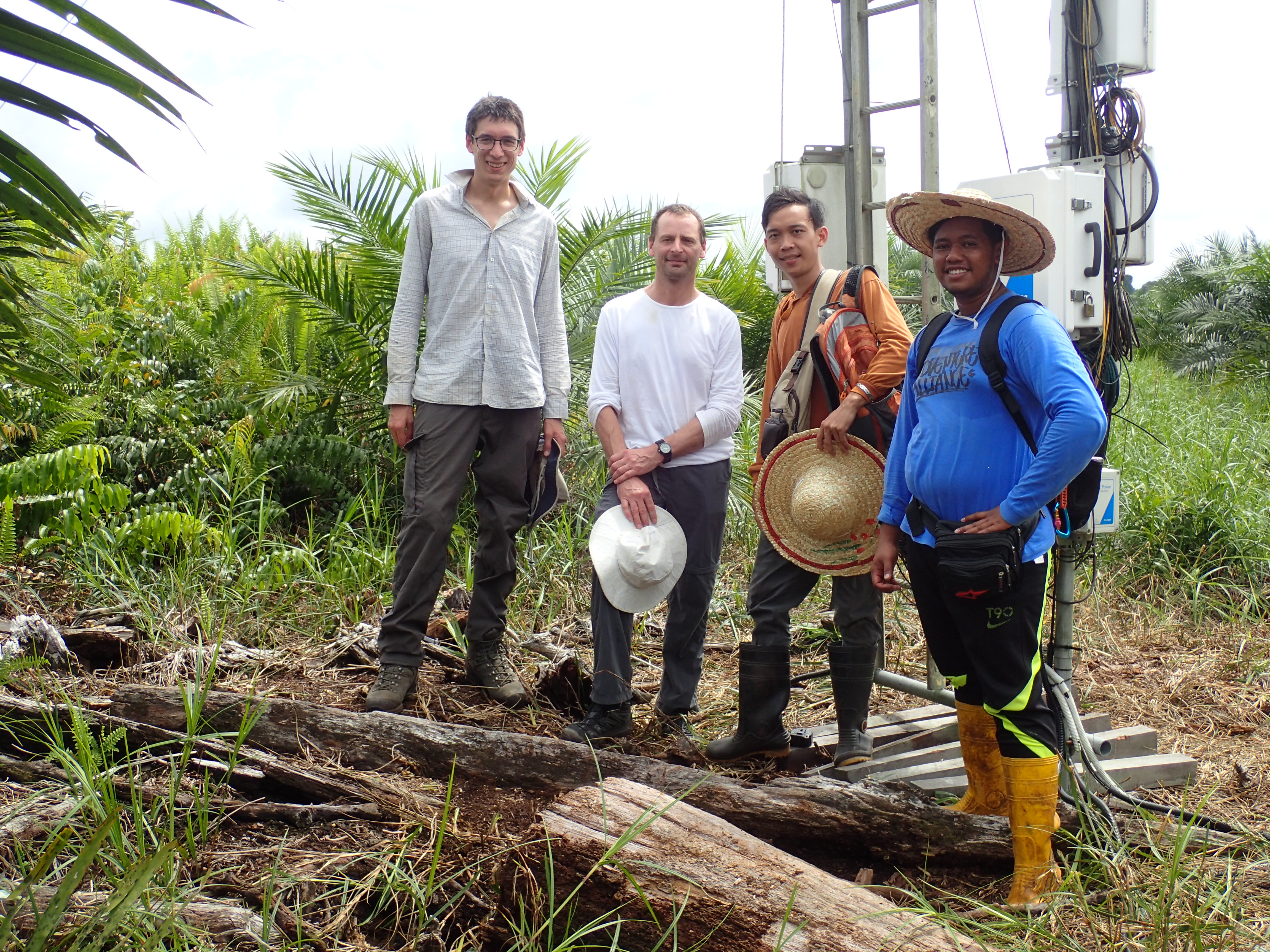
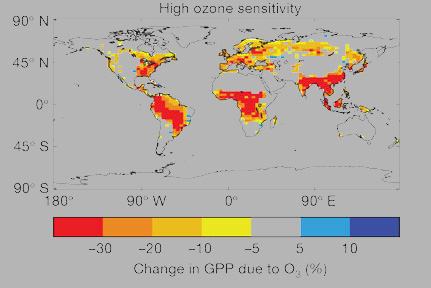
Title: Ozone impacts on tropical vegetation; implications for forest productivity (Trop-Oz)
Funder: NERC RCUK NE/R001812/1
Principal Investigator: Prof Stephen Sitch
Co-investigators: Professor GE (CEH), Dr N Unger (University of Exeter), Dr Timothy Hill (University of Exeter), Dr Harmens(CEH), Dr Lina Mercado (University of Exeter) and Dr Felicity Hayes (CEH)
Starting Year: 2018
Duration: 3.5 years
Description: In the lower atmosphere ozone (O3) is an important anthropogenic greenhouse gas and is an air pollutant responsible for several billion euros in lost plant productivity each year. In this project we, determine the impacts of ozone on tropical vegetation and forest productivity.
Title: Do dryland ecosystems control variability and recent trends in the land CO2 sink?
Funder: NERC RCUK NE/R00062X/1
Principal Investigator: Prof Richard Brazier
Co-investigators: Prof Stephen Sitch, Dr Timothy Hill, Dr Karen Anderson,
Research Co-investigators: Dr Andrew Cunliffe
Starting Year: 2018
Duration: 3.5 years
Description:
Significance: The project focuses on the carbon cycle in drylands, demonstrating empirically whether or not these landscapes have the capacity to control inter-annual variability and long-term trends in the land carbon sink.
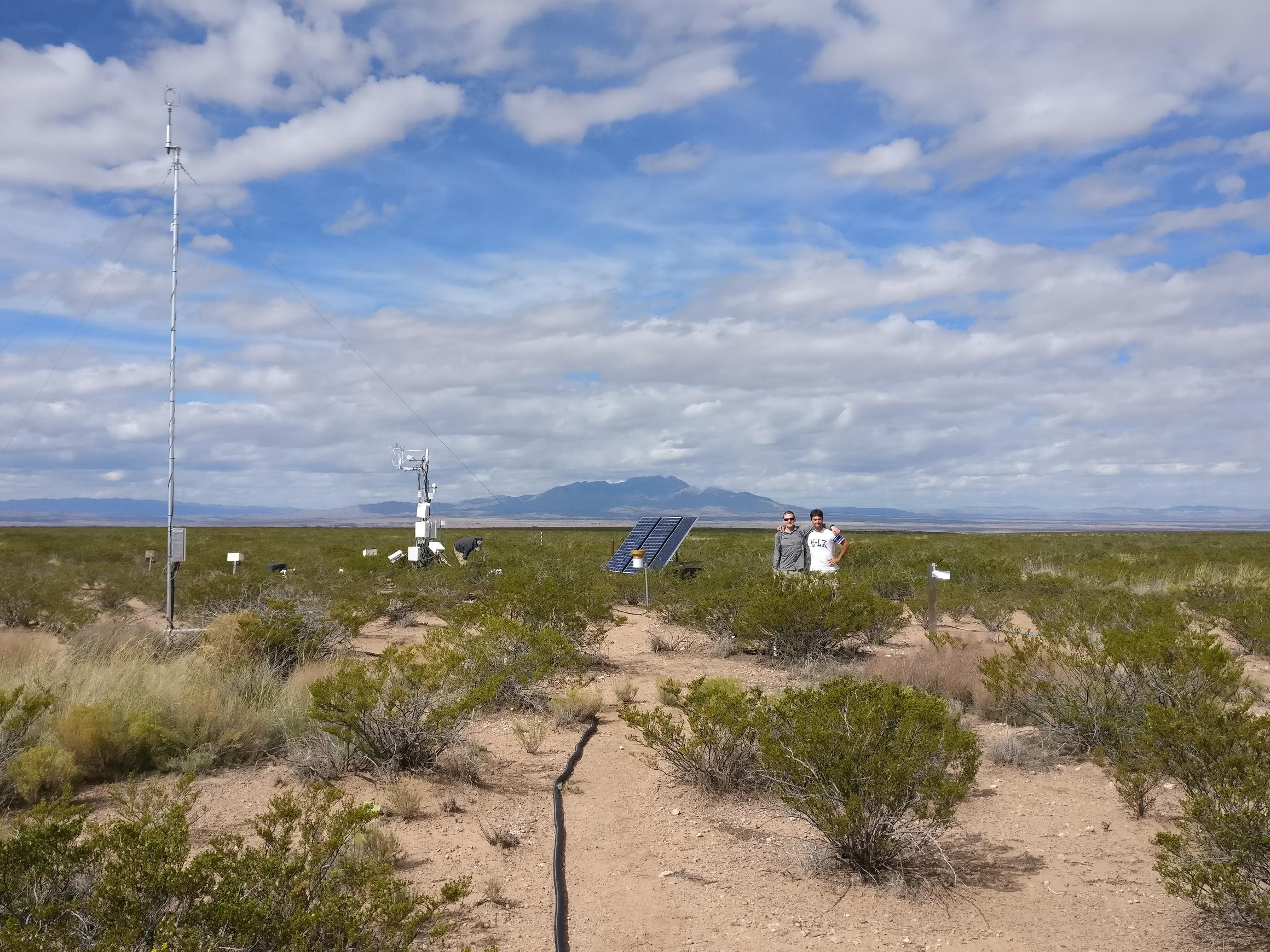
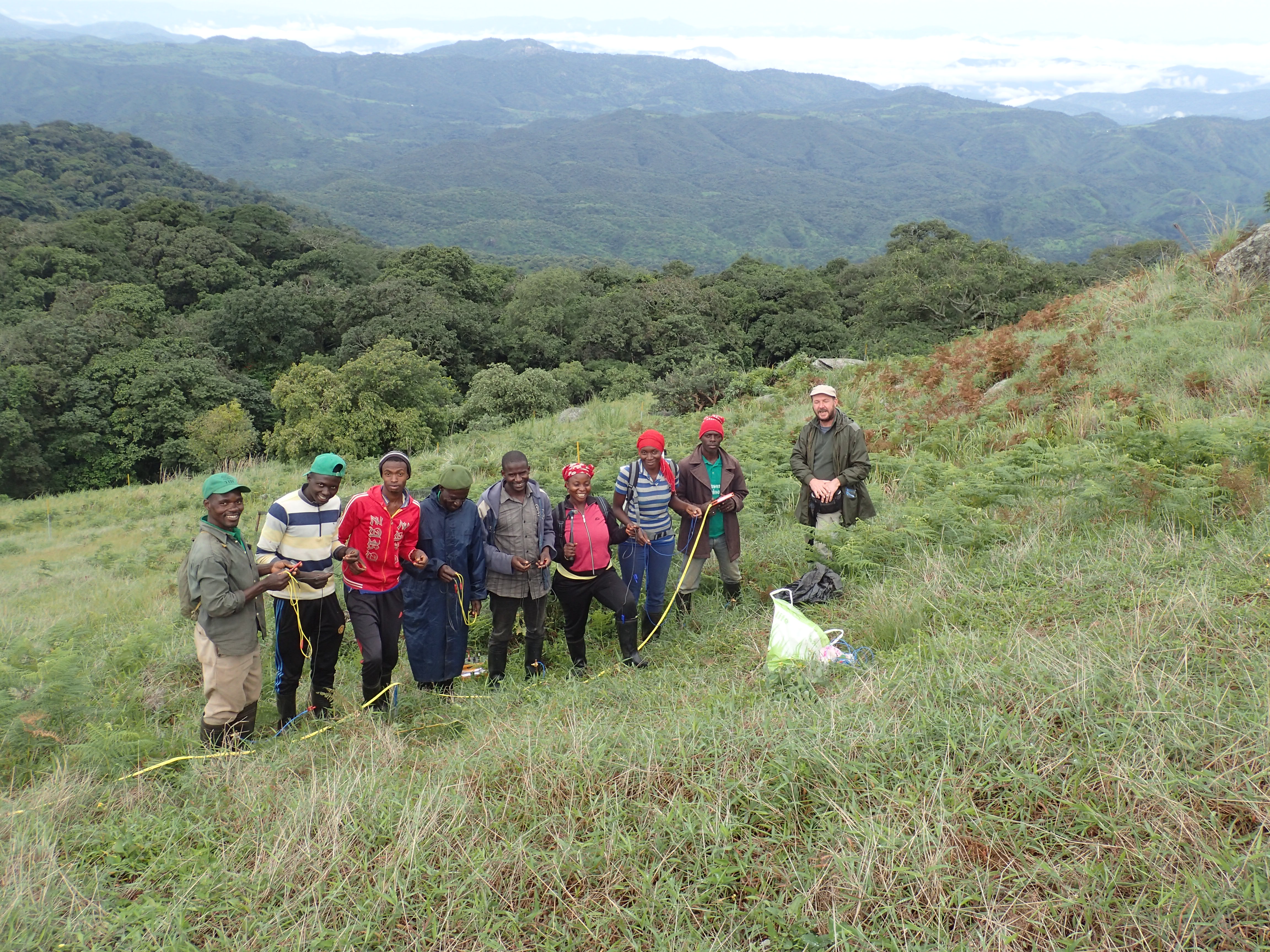
Title: Lightning: An invisible driver of tree mortality in the tropics?
Funder: NERC RCUK NE/P001564/1
Principal Investigator: Dr Timothy Hill
Co-investigators: Prof Manu Haddad (Cardiff University), Dr Ted Feldpausch (University of Exeter), Dr Lucy Rowland (University of Exeter), Dr Dan Mitchard (Cardiff University), and Dr Ed Mitchard (The University of Edinburgh)
Starting Year: 2017
Duration: 5 years
Description: The overarching scientific aim of our project is to determine the rate of lightning induced tree mortality in the tropics. Currently it is known that some large trees in the tropic have been killed by lightning, and it is also known that lightning strikes in the tropics are estimated to strike trees with up to~ 1 % of forest biomass each year. Therefore lightning could have a major influence on the forest dynamics. As lightning rates increase with climate warming, the strength of the terrestrial carbon sink may even be reduced. Despite the potential significance of lightning in the tropics, there have been almost no studies on the interaction between lightning and trees in the tropics. As a consequence, estimates on the rates of lightning induced tree mortality and subsequent lightning-driven forest carbon dynamics simply do not exist. In this project we are performing first systematic instrumentation of trees to determine of lightning induced mortality in the tropics. We are working with the University of Edinburgh and Cardiff University's Morgan-Botti Lightning Laboratory. We are also working with collaborators at The Nigerian Montane Forest Project, Ngel Nyaki, Nigerian and Anakasa, Ghana with FORIG. The photo shows Sivilo Stivanello ('right-hand side - the project's Senior Research Technician) with the team from the Nigerian Montane forest project, also see the blog for some of the other exciting things we have been doing on this project!
Completed Research Projects
Note: though many of these project have officially ended - research often continues!
Title: Making replicated eddy covariance a reality: A route to statistically significant carbon flux measurement
Funder: Royal Society RG160223
Principal Investigator: Dr Timothy Hill
Start Date: 2016
Description: 'Eddy Covariance' allows researchers to study the carbon cycle by observing the ‘breathing’ of whole ecosystems. Despite the extremely high equipment costs, eddy covariance is the de facto approach for measuring ecosystem C fluxes. The barrier imposed by its cost means that, despite being critical to climate change, the tropics are vastly under sampled. In this project I looked at the case for developing low cost Eddy Covariance systems: find out more here.
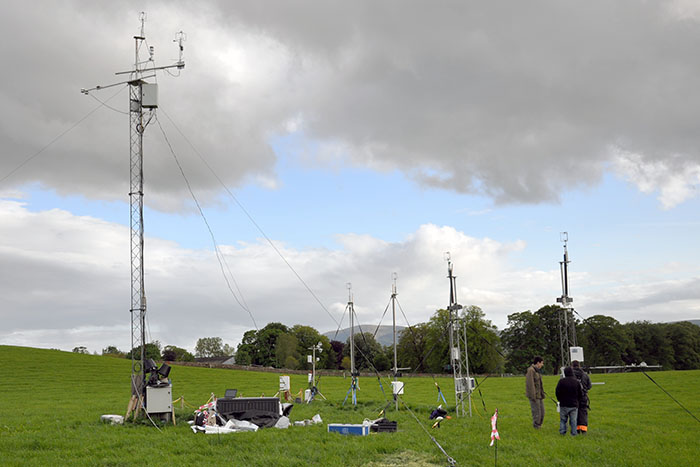
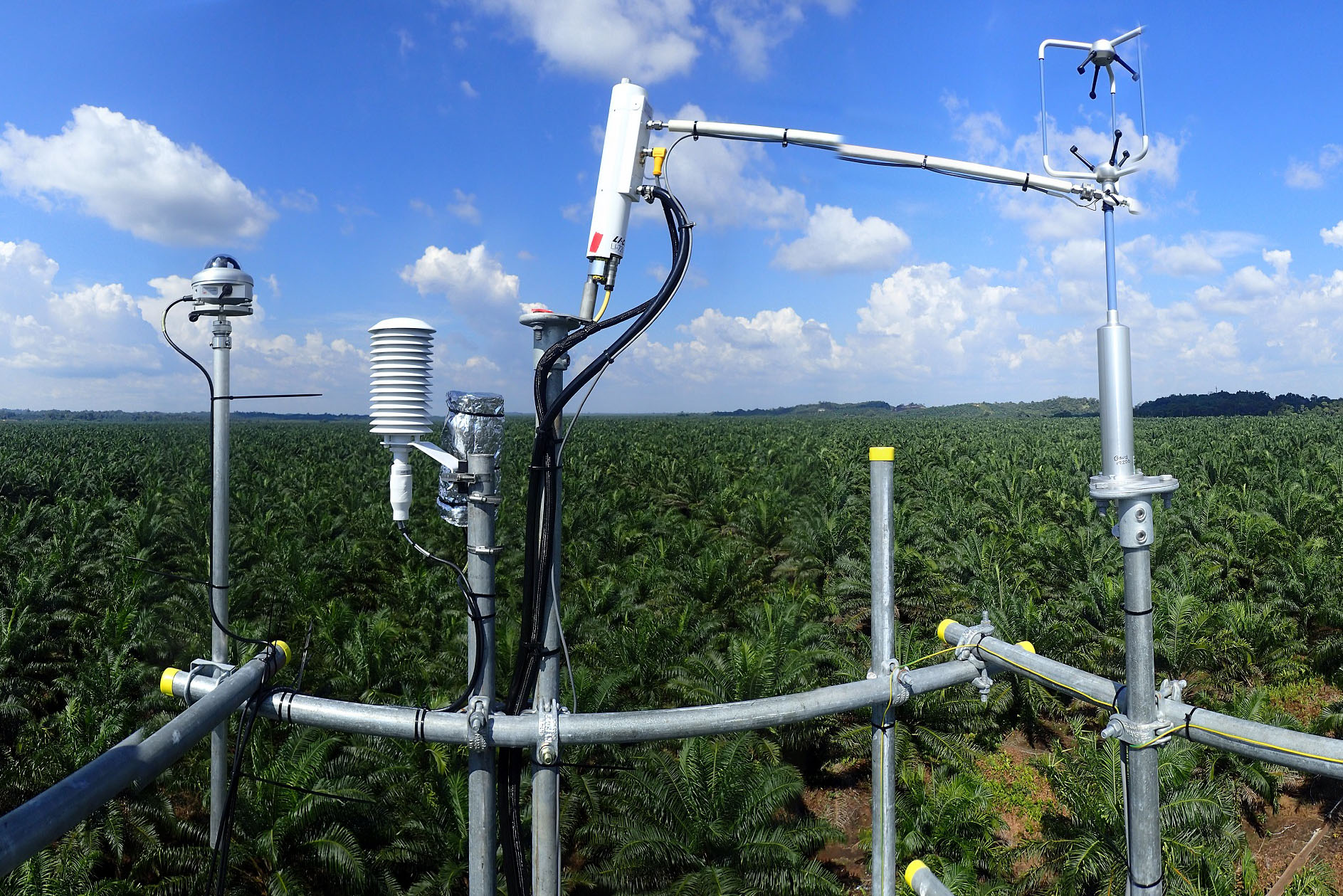
Title: Ecosystem carbon and nitrogen dynamics of tropical peatland.
Funder: MALAYSIAN PALM OIL BOARD (MPOB)
Principal Investigator(s): Dr Timothy Hill inc. Dr Lip Khoon Kho (MPOB) Dr Yit Arn The (U Aberdeen)
Starting Year: 2014
Description: In this project, I am working with researcher at the University of Aberdeen and the Malaysian Oil Palm Board to quantify and understand the eecosystem-scale fluxes of CO2, CH4 and N2O from logged tropical forest and oil palm using eddy covariance before, during and after land conversion. We have established a network of eddy covariance towers on peatland oil palm plantations in Sarawark, Malaysia
Title: Peatland Restoration in the Flow Country: How does this affect the carbon balance?
Principal Investigator(s) - including: Dr R Anderson, Dr N Cowie, Dr M Saunders, Dr Timothy Hill, et al.,
Starting Year: ~2012
Description: Together with a large consortium of researchers, Dr Graham Hambley (as part of his PhD) and I started Eddy Covariance measurements at the Talaheel site in North-East Scotland. This site has been restored by the RSPB, having previously been afforested. Graham has completed his PhD, but the research continues, led from the Flow Country Research Hub and The James Hutton Institute.
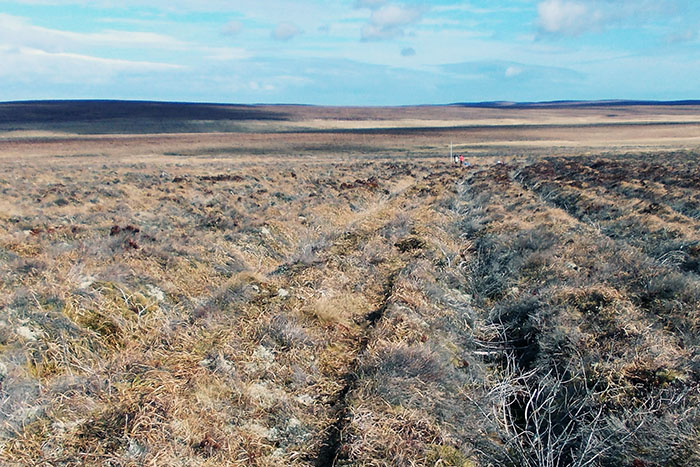

Title: Coastal Biodiversity and Ecosystem Service Sustainability (CBESS) consortium project
Funder: NERC RCUK NE/J015644/1
Principal Investigator(s): Prof Dave Paterson, University of St Andrew
Co-Investigator(s) - including: Dr Timothy Hill
Starting Year: 2012
Description: CBESS was one of four research consortia funded by the Biodiversity and Ecosystem Service Sustainability (BESS) programme, a six-year (2011-2017) NERC funded scheme. CBESS focused on coastal biodiversity, providing vital research into the health of the UK’s coastlines. Together with Dr Mel Chocholek, I provided continuous Green House Gas measurements of two tidally inundated salt-marshes in the UK.
